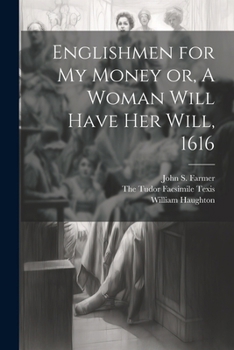Englishmen for my Money or, A Woman Will Have her Will, 1616
Select Format
Select Condition 
Book Overview
This play from 1616 offers a classic example of the genre known as city comedy. With witty dialogue and a farcical plot that includes cross-dressing and mistaken identity, the play provides a lighthearted yet incisive critique of society and gender roles in Jacobean England. This work has been selected by scholars as being culturally important, and is part of the knowledge base of civilization as we know it. This work is in the "public...
Format:Paperback
Language:English
ISBN:1022681907
ISBN13:9781022681903
Release Date:July 2023
Publisher:Legare Street Press
Length:186 Pages
Weight:0.59 lbs.
Dimensions:0.4" x 6.1" x 9.2"
Customer Reviews
0 rating





